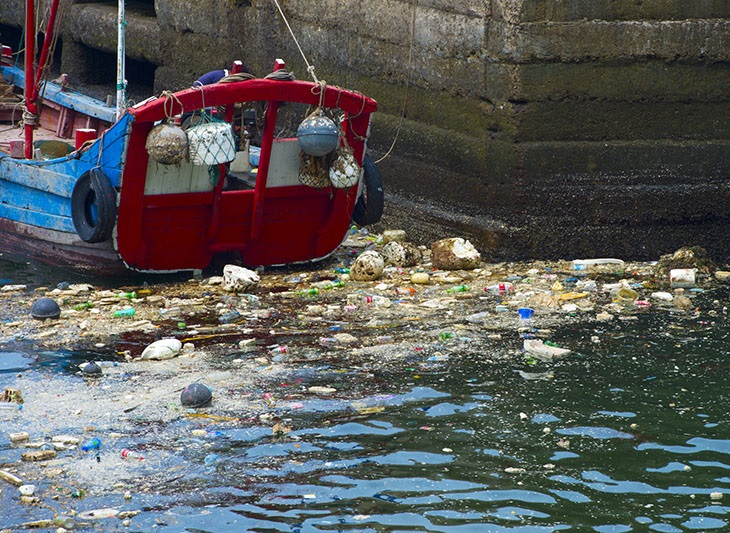APEC Combats Marine Debris to Secure Ecosystems, Trade

Oceans and fisheries officials from the 21 APEC member economies are mounting an expansive effort to fight the costly accumulation of man-made debris in the Asia-Pacific’s oceans and waterways. The aim is to enhance the sustainability of marine ecosystems critical to livelihoods and food security in the world’s most populous region.
Officials took forward measures to better position governments and the private sector to prevent and manage marine debris as part of a three-day policy development meeting this week in Arequipa. An assessment of the challenge helped to provide impetus for action.
“Floating and microscopic debris is a growing problem that jeopardizes the marine environments and resources that feed our people and fuel our economies,” said Asis Perez, Lead Shepherd of the APEC Oceans and Fisheries Working Group, which administers regional policy collaboration within the sector. “We are deepening our partnerships within APEC to improve controls required to mitigate this borderless threat.”
“The collaborative solutions that we are pursuing are guided by a shared recognition of the urgent need to limit pollution to protect marine ecosystems and ensure the sustainability of the economic activities that depend on them,” explained Perez, who also serves in the Philippine Department of Agriculture’s Bureau of Fisheries and Aquatic Resources
APEC economies are mobilizing to reduce the losses that they suffer due to marine debris which total an estimated USD1.26 billion annually. This includes vast amounts of consumer plastics, metals, rubber, paper, textiles, fishing equipment, vessels and other lost or discarded items that affect fishing, tourism, shipping and insurers.
They are also working to address the impact of microplastics, or small plastic particles from sources such as cosmetics, clothing and industrial processes, that can be ingested by marine life and put food safety and human health at risk.
“We are focused on raising awareness of the socio-economic impact of marine debis and facilitating the adoption and alignment of appropriate management policies to moderate it,” said Perez.
Officials are advancing a new two-year training initiative for governments and private sector representatives to move towards these ends. The program will analyze case studies, foster information-sharing on complex areas like microplastics and boost the proliferation of best practices in marine debris management and prevention.
Work is also underway in APEC to lower financial barriers to waste management system development and improvements, and encourage project investment, in coordination with the private sector. Emphasis is on pinpointing financing bottlenecks, potential investment pools, best-in-class business models and economic, legal and regulatory conditions necessary to accelerate waste management funding.
“Test sites are being established in the APEC region to identify viable approaches to eliminating the leakage of plastic and waste into oceans and waterways,” added Perez. “Our goal is to develop models for scaling investment that can be applied across the region.”
Sites have already been created in Angeles City, the Philippines, along the banks of the Pampanga River which drains into Manila Bay, as well as Bandung, Indonesia, home to the Citarum River—the third largest in Java. The sites were born out of public-private engagement bridging the oceans and fisheries and chemical sectors.
# # #
For more:
Details on APEC’s cluster of technical meetings underway in Arequipa through this week and subsequent meeting of Trade Ministers to modernize globalization can be found here.
See the complete schedule of APEC meetings in Arequipa here.
For additional information, or to arrange possible media interviews with APEC officials, please contact:
David Hendrickson (in Arequipa) +65 9137 3886 at [email protected]
Michael Chapnick +65 9647 4847 at [email protected]
More on APEC meetings, events, projects and publications can be found on www.apec.org. You can also follow APEC on Twitter and join us on Facebook and LinkedIn.

